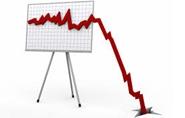Market Data

July 29, 2014
S&P/Case Shiller Home Price Indices Slow in May
Written by Sandy Williams
Home prices grew moderately in May according to the latest S&P/Case-Shiller Home Price Indices. On a year-over-year basis the 10-City Composite gained 9.4 percent and the 20-City gained 9.3 percent, down from the previous y/y gains reported last month of 10.9 percent and 10.8 percent, respectively. The 10- and 20-City Composites posted gains of 1.1 percent from the previous month with all twenty cities posting increases.
Tampa, San Francisco and Chicago led the gains for May with Charlotte posting its highest monthly increase in over a year. Only Phoenix and San Diego posted less than a one percent gain at, 0.4 percent and 0.5 percent, respectively.
“Home prices rose at their slowest pace since February of last year,” says David M. Blitzer, Chairman of the Index Committee at S&P Dow Jones Indices. “The 10- and 20-City Composites posted just over 9%, well below expectations. Month-to-month, all cities are posting gains before seasonal adjustment; after seasonal adjustment 14 of 20 were lower.”
“Housing has been turning in mixed economic numbers in the last few months. Prices and sales of existing homes have shown improvement while construction and sales of new homes continue to lag. At the same time, the broader economy and especially employment are showing larger improvements and substantial gains.”
Key Banc expects the slowing price trend will continue through the end of 2014. “We think moderating price trends will continue into year-end, reflecting strong past growth and growing limitations on both new and trade-up buyers’ capacity to support further price moves,” wrote Key Bank analyst Kenneth Zenner. “Price gains are a double edge sword, a catalyst for remodeling demand tied to owners rising equity, but a rising hurdle for renters trying to become owners.”







